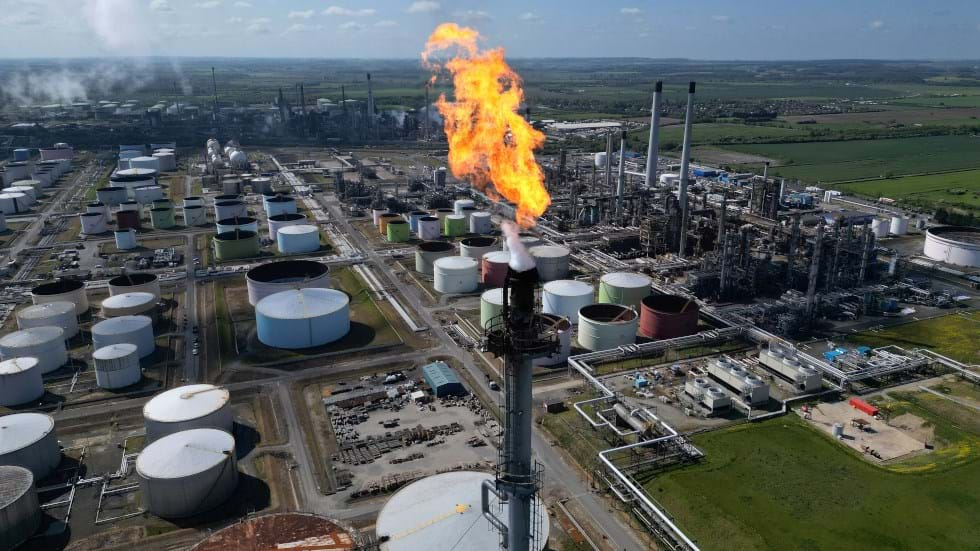Lindsey refinery insolvency puts hundreds of UK jobs at risk

AROUND 400 jobs are at risk after the Lindsey oil refinery on Humberside, UK was placed into insolvency. The UK government has called for an immediate investigation into the directors’ conduct, while a trade union is urging swift government action.
The refinery, which Prax bought from Total in 2021, filed for insolvency on 29 June. The Insolvency Service confirmed today that three businesses are going into liquidation: Lindsey Oil Refinery Limited, Prax Storage Lindsey Limited and Prax Terminals Killingholme Limited.
Financial records show the refinery lost around £75m between 2021 and February 2024. The government said that Prax was unable to adequately answer repeated requests from energy secretary Michael Shanks to share information about its financial gap, and therefore unable to provide the information they needed to assess Lindsey’s financial viability.
Shanks said: “There have been longstanding issues with this company and workers have been badly let down.”
The government has demanded the Insolvency Service immediately investigate the conduct of the company directors and the circumstances surrounding the insolvency.
“The company has left the government with very little time to act,” said Shanks. “The government is supporting the Official Receiver to carry out their statutory duties, including managing the situation on the site to determine next steps. This will include urgently reporting back on all potential uses of the site, prior to a wind-down of the refinery.”
The trade union Unite has demanded the government intervene immediately to protect Lindsey workers and fuel supplies.
Sharon Graham, Unite general secretary, said: “The government needs a short-term strategy to keep Lindsey operating and a sustainable long-term plan to fully protect all oil and gas workers.”
The government noted that the nearby Phillips 66 Humber refinery is the dominant fuel supplier on Humberside and continues to operate in profit.
With a production capacity of around 110,000 bbl/d Lindsey is the smallest of five refineries left in the UK. Its insolvency follows hot on the heels of the closure of the 150,000 bbl/d Grangemouth refinery in Scotland earlier this year. Its owner Petroineos blamed the closure on high maintenance costs, falling demand for fuels and an inability to compete with larger, modern refineries in the Middle East, Asia and Africa.
Following the release of the government’s long-awaited industrial strategy earlier this month, trade group Fuels Industry UK warned that further action was needed to reduce high industrial energy costs and strengthen skills.
Elizabeth de Jong, CEO of Fuels Industry UK, said: "We have told UK government the severe challenges that our sector faces and the policy changes that can keep our remaining refineries competitive. We must now see a shift towards delivering the changes that can make a difference – inclusion in the Carbon Border Adjustment Mechanism and addressing hugely expensive industrial energy and carbon costs – to put us on an even playing field with the rest of the world.”
Recent Editions
Catch up on the latest news, views and jobs from The Chemical Engineer. Below are the four latest issues. View a wider selection of the archive from within the Magazine section of this site.




